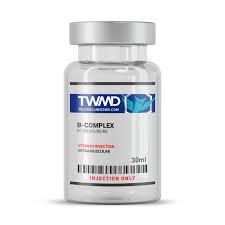Vitamin B12 Patient Teaching
Diagnosed with a Vitamin B12 deficiency. Don’t worry, you’re not alone. moreover Vitamin B12 patient teaching equips you with the knowledge. Tools to effectively manage your deficiency and improve your overall health. Furthermore This blog will guide you through understanding B12, treatment options, and essential lifestyle tips for optimal B12 management.
Visit Official Website: TeleWellnessmd
What is Vitamin B12?
Vitamin B12, also known as cobalamin is a vital nutrient that plays a crucial role in keeping our bodies functioning properly. Furthermore It supports healthy red blood cell formation, maintains a healthy nervous system, and promotes brain function.
Understanding B12 Deficiency
A B12 deficiency can occur due to various reasons, including:
- Dietary Restrictions: Strict vegetarians or vegans might be at higher risk due to the limited availability of B12 in plant-based foods.
- Medical Conditions: Certain medical conditions, such as pernicious anemia, Crohn’s disease, or celiac disease, can hinder B12 absorption from food.
- Age: As we age, our bodies become less efficient at absorbing B12 from food.
Symptoms of B12 Deficiency
If you’re experiencing some of the following symptoms, it could be a sign of B12 deficiency:
- Fatigue and weakness
- Shortness of breath
- Pale skin
- Tingling or numbness in hands and feet
- Dizziness
- Difficulty concentrating
- Memory problems
Diagnosing B12 Deficiency
If you suspect a B12 deficiency, your doctor can conduct a blood test to diagnose the condition.
Treatment Options for B12 Deficiency
- B12 Injections: This method bypasses the digestive system and delivers B12 directly into the bloodstream, making it ideal for individuals with severe deficiencies or absorption problems. In the initial phase, injections might be frequent, gradually transitioning to less frequent maintenance injections.
- B12 Supplements: For individuals with mild deficiencies or those who can absorb B12 from food, oral supplements can be a convenient option. These come in various forms like tablets, lozenges, and sprays. The dosage and duration of supplementation will depend on the severity of the deficiency.
Living with B12 Deficiency
Vitamin B12 patient teaching empowers you to manage your deficiency effectively. Here are some key points to remember:
- Follow Your Doctor’s Recommendations: Adherence to the prescribed treatment plan, whether injections or supplements, is crucial for maintaining healthy B12 levels.
- Regular Follow-Up Appointments: Schedule regular checkups with your doctor to monitor your B12 levels and adjust the treatment plan as needed.
- Dietary Considerations: For individuals who can consume animal products, incorporating B12-rich foods like meat, poultry, fish, and dairy into your diet can support B12 levels.
- Vitamin B12 Fortified Foods: Consider including B12-fortified foods like breakfast cereals, plant-based milks, and nutritional yeasts in your diet, especially if you follow a vegetarian or vegan lifestyle.
- Healthy Lifestyle Habits: Maintaining a healthy lifestyle with adequate sleep, stress management, and regular exercise can contribute to overall well-being and potentially aid in B12 absorption.
Additional Tips
- Join a Support Group: Connecting with others managing B12 deficiency can offer emotional support and valuable insights.
- Educate Yourself: Learning about B12 deficiency and its management can empower you to make informed decisions about your health.
- Advocate for Yourself: Don’t hesitate to ask questions and express any concerns you have to your doctor or healthcare team.
Living a Healthy Life with B12 Deficiency
By following these tips and working closely with your doctor, moreover you can effectively manage your B12 deficiency and live a healthy, fulfilling life. Furthermore Remember, knowledge is power. Vitamin B12 patient teaching equips you with the tools you need to take charge of your health and feel your best.
